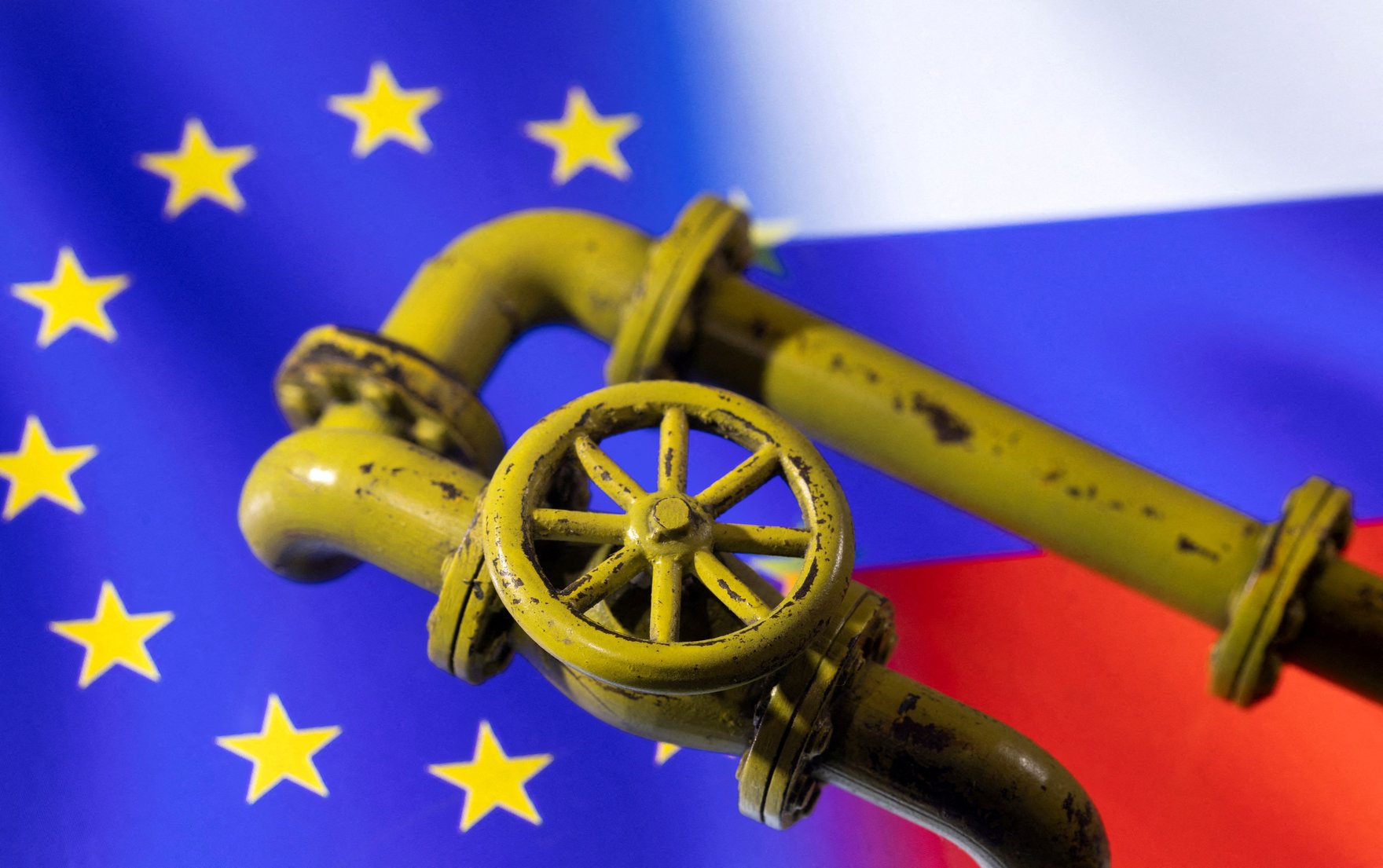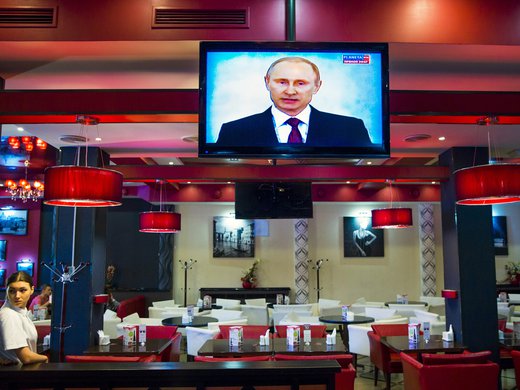As evidence of Russian war crimes against Ukrainian civilians mounts, so do calls for tougher sanctions against Russia. Yet despite the barbarity on display in the suburbs of Kyiv, the sanctions that result are unlikely to include expelling Russia from the UN Security Council as Ukrainian President Volodymyr Zelenskyy has demanded.
First, efforts to remove Russia would raise the awkward question of precedent regarding the US invasion of Iraq in 2002. Then there is the legalistic Catch-22 that the UN Charter does not include a mechanism for removing a permanent member of the Security Council; a member can be ejected from the UN General Assembly, but only on the Security Council’s recommendation (which, obviously, Russia would veto). Finally, even if there were strong momentum to reform the Charter to override a member’s veto to permit that member’s expulsion, by consistently voting against UN resolutions condemning Russia, China has made it clear that it would block such action.
China’s reluctance to condemn Russian aggression also raises questions about the effectiveness of existing sanctions. These questions are warranted. The comprehensive package of sanctions introduced immediately after Russia invaded Ukraine had a devastating impact on the ruble, which collapsed in value. Since then, however, Russia’s currency has rebounded to pre-invasion levels, leading President Vladimir Putin to claim that sanctions have failed.
Have they failed?
Before the invasion, the hope in the White House had been that the threat of sanctions would give the Kremlin pause and lead it to back away from war. Unfortunately, the Russians invaded anyway. But that is not wholly surprising nor sufficient reason to conclude the current sanctions regime is ineffective.
Several factors are relevant here. First, Putin may have believed the United States, its North Atlantic Treaty Organization allies and others simply wouldn’t follow through on their threats, since doing so would entail costs in terms of higher commodity prices and increased uncertainty in the global economy.
Second, he may have misjudged the extent of the sanctions imposed against Russia and their economic and financial effects. In this respect, as argued previously, freezing the foreign reserves of the Russian central bank held in Group of Seven central banks is a game changer. Third, for sanctions to have had a deterrent effect, Putin would have had to correctly assess their effects on the Russian economy — and its people — and choose the path of de-escalation to avoid those costs.
Regardless of whether Putin correctly assessed the impact of sanctions, his actions in the weeks since the invasion demonstrate that he attaches very little weight to the long-term welfare of either ordinary Russians or the oligarchs whose foreign assets are being seized, as long as he enjoys a jingoistic boost in popularity.
So, no, the threat of sanctions did not prevent the Russian invasion. That just means the sanctions regime will remain in place over the long term. And it will be the average Russian, who has wisely avoided politics over the past two decades, whose life will become steadily more miserable. Some firms in Russia are already shutting down or reducing production as sanctions disrupt their access to key inputs, and such effects can be expected to increase. Jobs will be lost as firms shutter factories because of shortages of key inputs. Lifesaving drugs and medical equipment will be in short supply. And households’ savings will be eroded by higher prices for the goods that are available.
There is enormous uncertainty about the timing of these effects and how much more death and destruction will be visited upon the Ukrainian people in the meanwhile. What is clear is that the exceptions to the European Union’s energy sector sanctions, to safeguard its own supplies, clearly reduce the sting of the measures introduced thus far and have the unintended consequence of financing Russia’s war effort; Russia’s current account surplus has ballooned since the invasion of Ukraine as higher prices for oil and gas more than offset reduced shipments. Those surpluses, together with draconian capital controls, explain why the ruble has rebounded. Don’t expect the status quo to last, however.
As the senseless killing of Ukrainian civilians goes on, pressure will increase on Europe to wean itself off Russian energy dependency. A ban on Russian coal is already in the works. Oil will be next. Gas will take longer, given the time required to build the infrastructure necessary to transition from natural gas piped in from Russia to liquefied natural gas shipped in from the Middle East and the United States.
The United States tightened the screws by determining that frozen central bank reserves could not be used to service outstanding debts but would be allowed for payments to be made on debts held by foreign investors.
In the interim, more pressure has been brought to bear on Russia. The United States tightened the screws by determining that frozen central bank reserves could not be used to service outstanding debts but would be allowed for payments to be made on debts held by foreign investors. The Kremlin then had to decide between using its foreign exchange earnings to avoid international default, to finance imports of critical inputs for the war effort, or to sustain living standards of the Russian people. Russia responded by claiming it has the right to service debts in rubles.
While some (not all) of Russia’s foreign bond issues have alternate currency payment provisions, these clauses are subject to litigation, given that Russia is the author of the distress necessitating their use. Such cases would take years to litigate; in the meantime, bond rating agencies are likely to declare Russia in default if these alternative currency provisions are deployed.
On May 25, however, the United States decided to end the waiver that permitted Russia to make external debt payments from export earnings to avoid default. In effect, this makes Russian default inevitable. The rationale behind the move is unclear. On the one hand, allowing Russia to service its foreign debt reduced the financial resources available to the Kremlin, potentially hampering its capacity to wage war in the near term. Removing the waiver, and triggering a default, on the other hand, could have longer-term financial repercussions.
By degrading Russian assets to default status, the move could represent a de facto extension of financial sanctions. Countries and financial institutions that might have been inclined to thwart the formal sanctions will have to think twice about providing financing to Russian firms (a sovereign default has unambiguously negative effects on the ratings and creditworthiness of banks and non-financial companies in that country). In this respect, the US Treasury’s decision to withdraw the waiver may thus signal resolve to ensure that the sanctions regime is both punitive and permanent — that it will be in place “for the duration.”
There is another option that could increase financial pressure on Russia. Just as Europe is dependent on Russia for energy in the short term, Russia is limited in its capacity to diversify its sales of natural gas. China or India might be willing to buy more gas, but the amount that can be shipped to new markets is limited by existing pipeline capacity.
As a result, while a European threat to go “cold turkey” off Russian energy would lack credibility, Russia’s warning of shutting down shipments is similarly incredible, which may create an opportunity for Europe to unilaterally reduce its payments. It is clear that such a plan has been given consideration, with Prime Minister of Italy Mario Draghi broaching the idea of a “cartel of buyers.” Russia would, of course, threaten to cut off shipments entirely, but actually doing so, without other buyers in place, would squeeze the Kremlin’s ability to wage war, and quickly undo the financial stabilization achieved by its careful stewardship of the Russian central bank.
There is, obviously, a limit to what Europe can propose. But as economic hardships increase, the Kremlin would need access to key imports for key inputs and pharmaceuticals. And, with its access to foreign capital markets curtailed by debt default, it may be prepared to accept a smaller share of gas payments.
Such a scheme depends on the absence of other buyers for Russia’s energy. In the short term, Russia’s limited pipeline infrastructure may provide some scope for bilateral monopoly bargaining. However, once Russia builds more pipelines, Europe’s bargaining capacity would be reduced. Moreover, to the extent that Russia’s existing pipelines to third parties are not fully utilized, Europe’s negotiating power is similarly limited.
These considerations underscore a general point: the effectiveness of the sanctions regime depends on its scope and enforcement. While it is clearly early days, implicit compliance appears to be high, including by Chinese firms. Exports by Asian firms in countries not formally supporting sanctions have fallen by about the same as exports by firms in countries that are actively enforcing them. This is somewhat surprising, given China’s diplomatic support of (or at least reluctance to criticize) Russia at the United Nations and other fora.
However, the reason Chinese (and other) firms have been reluctant to fill the void created by sanctions has little to do with geopolitics and everything to do with finance: Chinese banks that want to remain connected to global financial markets are wary of facilitating transactions between Chinese and Russian entities, for fear of secondary sanctions by the United States or other jurisdictions. Meanwhile, firms that could profit from trading with Russia may be unwilling to risk access to far larger markets in the United States, Europe and Japan.
Nonetheless, the effectiveness of sanctions will surely erode as ways are devised to evade them and conceal shipments (through North Korea, for example). Efforts to expand alternative financial payments systems that do not rely on the US dollar, US banks, and US and European clearing systems will undoubtedly accelerate.
But such efforts point to the need for the coalition of countries levying sanctions to constantly police the perimeter and expand participation in the sanctions regime. Crypto-assets that undermine sanctions could be subjected to tighter regulation, for example. And US Treasury Secretary Janet Yellen has already given notice to those whose support of sanctions is less than wholehearted or who openly refuse to participate that they cannot both benefit from the rules-based system of international governance and undermine the system. Anyone who hasn’t heard that message clearly isn’t listening.
The sobering conclusion is that the longer the war’s duration, the greater its collateral damage: the greater the human cost in innocent lives lost in an unprovoked war, and the greater the likelihood of a bifurcation of the global economy. This damage would be the ultimate sanctions complication.



